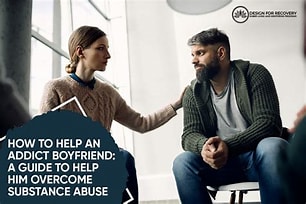Supporting a Partner Through Addiction
Introduction
Supporting a partner through addiction can feel like navigating a stormy sea. The waves of emotions—fear, frustration, love, and helplessness—can be overwhelming. You might find yourself asking, “How can I help them?” or “What if my support isn’t enough?” These questions are common among those who love someone struggling with addiction. While it’s a challenging journey, understanding how to provide compassionate support can make a significant difference in both your partner’s recovery and your own well-being. In this article, we’ll explore the nuances of addiction, signs to look for, and practical strategies to support your partner while also taking care of yourself.
Understanding Addiction
What is Addiction?
Addiction is a complex condition characterized by compulsive engagement in rewarding stimuli despite adverse consequences. It can involve substances like drugs and alcohol or behaviors such as gambling. Understanding that addiction is often rooted in psychological and physiological factors is crucial for supporting your partner effectively.

The Science Behind Addiction
Addiction alters brain chemistry, affecting areas responsible for judgment, decision-making, learning, and memory. This means that your partner may not be able to simply “choose” to stop using substances without help. Understanding this can foster empathy and patience as you navigate this journey together.
Recognizing the Signs of Addiction
Physical Signs
Be attentive to physical changes in your partner’s appearance or health. These might include:
- Weight fluctuations: Significant weight loss or gain can indicate substance abuse.
- Poor hygiene: Neglecting personal care may signal deeper issues.
- Changes in sleep patterns: Insomnia or excessive sleeping can be red flags.
Behavioral Changes
Behavioral signs are often more subtle but equally important:
- Isolation: If your partner withdraws from social activities they once enjoyed, it could indicate a problem.
- Mood swings: Noticeable changes in mood or temperament may reflect the stress of addiction.
- Neglecting responsibilities: If they begin to miss work or neglect household duties, it’s time for a serious conversation.
Emotional Indicators
Emotional signs can be particularly challenging to identify but are crucial for understanding your partner’s state:
- Increased anxiety or depression: These feelings often accompany addiction.
- Guilt or shame: Your partner may express feelings of worthlessness related to their substance use.
- Defensiveness: If they become defensive when discussing their habits, it may indicate denial about their addiction.
How Addiction Affects Relationships
The Impact on Communication
Addiction can create barriers to effective communication. Partners may struggle to express their feelings openly due to fear of confrontation or judgment. This lack of communication can lead to misunderstandings and resentment.
Emotional Distance
As addiction takes hold, emotional distance often follows. You might feel like you’re living with a stranger rather than the person you fell in love with. This disconnect can be painful and isolating.
Financial Strain
Addiction can also lead to financial difficulties as resources are diverted towards substance use. This strain can create additional stress within the relationship, leading to conflicts over money management.

Supporting Your Partner: A Compassionate Approach
1. Educate Yourself About Addiction
Understanding addiction is the first step toward effective support. Read books, attend workshops, or join support groups focused on addiction recovery. The more you know, the better equipped you’ll be to help your partner.
2. Open the Lines of Communication
When discussing your concerns with your partner, choose a calm moment when both of you are sober. Use “I” statements to express how you feel without sounding accusatory. For example:
- “I feel worried about how much you’ve been drinking lately.”
- “I miss spending quality time with you.”
3. Encourage Professional Help
While you can’t force someone into treatment, you can encourage them to seek help. Offer to accompany them to appointments or help them research treatment options that suit their needs.
Types of Treatment Options:
- Inpatient rehabilitation: Provides intensive support in a controlled environment.
- Outpatient programs: Allows individuals to continue working while attending therapy sessions.
- Support groups: Groups like Alcoholics Anonymous (AA) offer community support for those struggling with addiction.
4. Set Healthy Boundaries
Establishing boundaries is crucial for maintaining your own mental health while supporting your partner. This might mean:
- Refusing to enable destructive behaviors (e.g., covering for them at work).
- Setting limits on what behaviors you will tolerate (e.g., not allowing substance use in your home).
5. Practice Self-Care
Supporting someone through addiction can be emotionally draining. Make sure you prioritize self-care by:
- Engaging in activities that bring you joy.
- Seeking therapy or counseling for yourself.
- Joining support groups for partners of addicts (e.g., Al-Anon or Nar-Anon).
Navigating Relapse: What to Expect
Understanding Relapse as Part of Recovery
Relapse is often viewed as a failure; however, it’s essential to understand that it can be a part of the recovery process for many individuals battling addiction. Recognizing this can help mitigate feelings of disappointment and frustration.
How to Respond if Your Partner Relapses
If your partner relapses, approach the situation with compassion rather than anger:
- Stay calm: Reacting with anger will only push them further away.
- Encourage open dialogue: Ask them what led to the relapse without judgment.
- Reassess treatment plans: Discuss whether adjustments need to be made in their recovery strategy.

Building a Supportive Environment at Home
Create a Drug-Free Space
Ensure that your home is free from triggers associated with substance use. This might mean removing alcohol from the house or avoiding situations where drug use might occur.
Foster Healthy Habits Together
Encourage activities that promote well-being and connection:
- Exercise together: Physical activity releases endorphins that improve mood.
- Cook healthy meals: Preparing meals together fosters connection and encourages healthier choices.
- Engage in hobbies: Find shared interests that allow you both to bond without the influence of substances.
The Importance of Patience and Understanding
Supporting a partner through addiction requires immense patience and understanding. Recovery is rarely linear; there will be ups and downs along the way.
Celebrate Small Victories
Recognize and celebrate small milestones in your partner’s recovery journey—whether it’s attending a therapy session or going a week without using substances. Celebrating these victories reinforces positive behavior and strengthens your bond.
When It’s Time to Seek Help for Yourself
Supporting someone through addiction can take a toll on your mental health. If you’re feeling overwhelmed or unable to cope:
- Seek professional counseling: A therapist can provide guidance tailored specifically for partners of individuals struggling with addiction.
- Join support groups: Connecting with others who understand what you’re going through can provide comfort and insight.
- Practice stress-relief techniques: Mindfulness meditation, yoga, or journaling can help manage stress levels effectively.
Read This: Signs You’re Growing Apart: How to Reconnect with Your Partner
Conclusion
Supporting a partner through addiction is undoubtedly challenging but also incredibly rewarding when approached with compassion and understanding. By educating yourself about addiction, fostering open communication, setting healthy boundaries, and prioritizing self-care, you not only help your partner but also nurture your own well-being.
Remember that recovery is a journey filled with ups and downs; patience is key during this process. With love and support from both sides, it’s possible not only to overcome addiction but also to emerge from this experience stronger than ever—together.
FAQs
1. How do I know if my partner needs help?
Look for signs such as changes in behavior, physical appearance, emotional withdrawal, increased secrecy about activities, or neglecting responsibilities.
2. Can I force my partner into treatment?
You cannot force someone into treatment against their will; however, you can encourage them by expressing concern and offering support in seeking help.
3. What should I do if my partner relapses?
Stay calm and avoid anger; encourage open dialogue about what led to the relapse and discuss adjustments needed in their recovery plan.
4. How do I set boundaries without pushing my partner away?
Communicate clearly about what behaviors are unacceptable while expressing love and concern for their well-being; ensure they understand that boundaries are meant for mutual respect.
5. Where can I find support for myself?
Consider joining groups like Al-Anon or Nar-Anon for partners of addicts; therapy sessions tailored for caregivers can also provide valuable support and resources.


